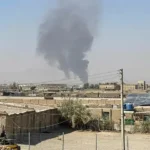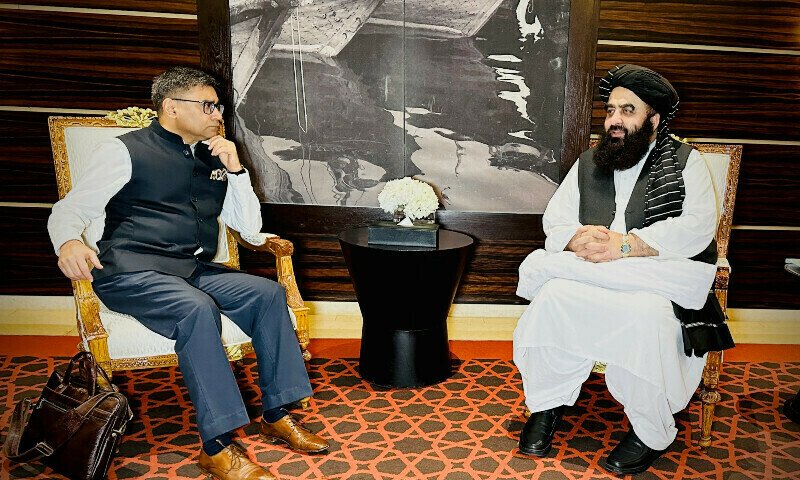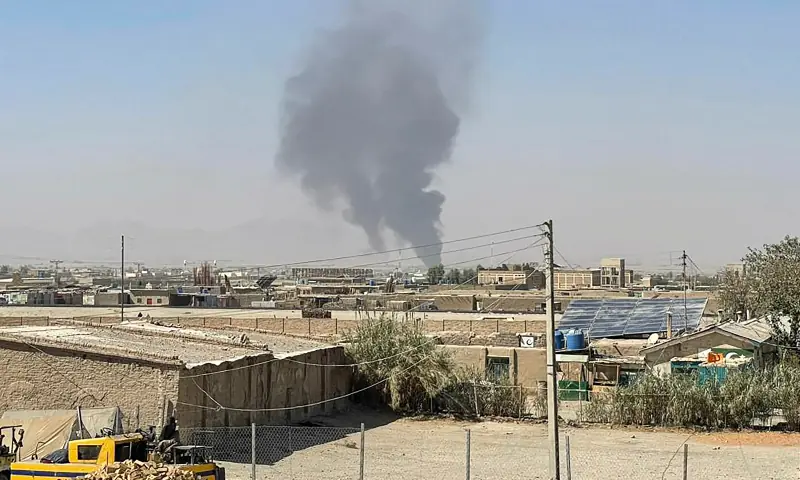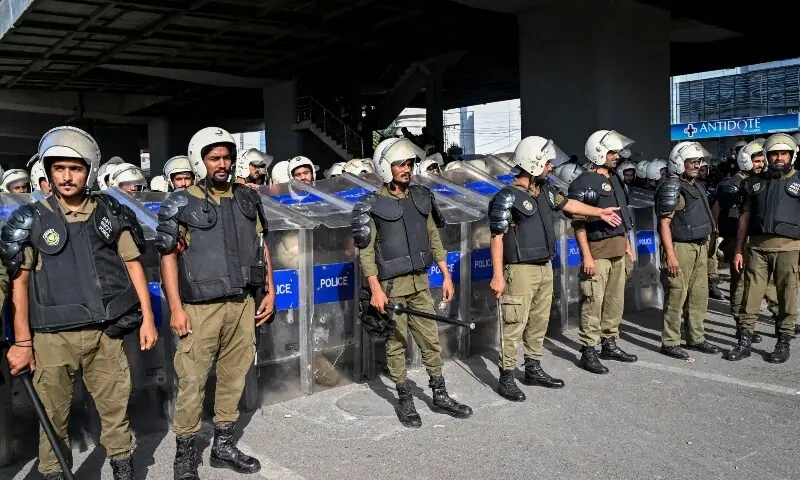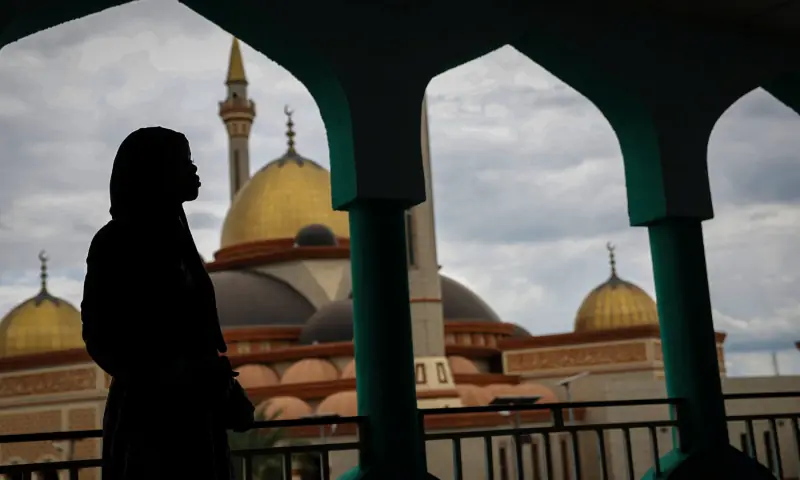Former ambassador Mansoor Ahmad Khan says tensions have risen due to economic actions, including border closures, trade restrictions and airstrikes on Afghan territory.
WHEN India withdrew its diplomats from Afghanistan in 2021, very few experts would have bet that ties between the two nations could ever be restored as long as the Taliban maintained their hold on Kabul.
New Delhi’s relations with the Afghan Taliban have been contentious since the 1990s, mainly due to the latter’s closeness to Pakistan at the time.
During the first Taliban regime, from 1996 to 2001, India actually protected and supported the Northern Alliance of Mohammad Najibullah and Ahmad Shah Massoud in their efforts to oust the Taliban from power.
Then, under NATO’s presence in Afghanistan from 2001 to 2021, New Delhi redoubled its anti-Taliban policies, making the gap between the two capitals seem unbridgeable.
Throughout these decades, he continued to label the Afghan Taliban as “terrorists”, denying their political credentials and even opposing any idea of peace talks, even as the United States attempted to engage them in Doha, before their failed withdrawal.
In recent months, people-to-people relations and trade and transit between Pakistan and Afghanistan have been restricted. This has generated resentment in the hearts of the Taliban regime, which is now looking for other actors to help it reduce its economic dependence on Pakistan.
After the 2020 Doha agreement, many analysts were of the view that India had painted itself into a corner; its position had become untenable and, as far as Afghanistan was concerned, it had lost relevance for some time.
Just before the Taliban takeover, India was among the countries whose diplomats abandoned their missions and were unceremoniously evacuated from Kabul airport. Although it restored certain lower diplomatic levels in 2022 and subsequently provided some humanitarian assistance, it was still difficult to imagine India and the ‘Islamic Emirate 2.0’ getting closer.
There was too great an ideological divide, too bitter a past (not to mention the entire Pakistani territory) between them.
A few years later, things look completely different. Today, Islamabad finds itself in a complicated situation, where the prospect of being potentially caught between two hostile neighbors seems increasingly tangible.
Misri-Muttaqi meeting
Last week’s meeting between Indian Foreign Minister Vikram Misri and Afghanistan’s Acting Foreign Minister Amir Khan Muttaqi was an important development, signaling India’s willingness to seize the opportunity that offers Pakistan’s informal treatment of its western neighbor.
Earlier, it was JP Singh, joint secretary of the Pakistan-Afghanistan-Iran division of the Indian Ministry of External Affairs, who met for the first time in Kabul the acting Defense Minister, Mullah Mohammad Yaqoob, son of the founder of the Taliban, Mullah Omar. November 6.
“The recent meeting… is a notable development in view of the future implications for the regional scenario. In my opinion, Pakistan should not be influenced by contacts between Afghanistan and India as it is a sovereign right of [both] countries have the relations of their choice,” said Mansoor Ahmad Khan, former Pakistani ambassador to Afghanistan. Sunrise.
“For Pakistan, it is important to resolve its relations with Afghanistan based on the positive natural advantages that the two neighbors and their people have between each other,” he said.
This, it seems, is easier said than done.
Despite its misgivings with the Kabul regime and the decline of its once famous “relationship” with the group (given that several senior Taliban figures are closely linked to religious seminaries in Khyber Pakhtunkhwa), Pakistan has continued to push for May the commitment continue. with the Kabul regime after the events of August 15, 2021.
During his tenure as foreign minister, Bilawal Bhutto-Zardari had continually argued against the isolation of the Afghan Taliban. As recently as September last year, Pakistan’s UN envoy Munir Akram told the UN General Assembly that regardless of the mistakes made by the Kabul regime, Afghanistan’s internal and external problems could only resolved through compromise and joint action.
But at the same time, events unfolding along the Durand Line seemed to drown out these more sensible voices. Clashes between border security personnel and raid attempts that were repulsed by Pakistani security forces were not uncommon.
In a particularly sharp disagreement over travel document requirements, the Torkham and Chaman crossings remained closed for several days, causing widespread discontent on both sides. Most of Afghanistan’s land trade, as well as its access to ports, passes through Pakistan, so any closure will hurt Kabul economically.
Then there is the thorny issue of repatriation: nearly half a million “unregistered” Afghan refugees were forced to return to their country, whether they like it or not, in November 2023. A second round of repatriation will begin soon, which may target a million more people.
However, the Kabul regime is not happy with this influx of more mouths to feed as it struggles to make ends meet for the existing population.
The last straw, so to speak, came in the form of openly hostile language coming from Islamabad and cross-border attacks.
In the last three years, Pakistan has carried out two airstrikes against suspected hideouts of the banned Tehreek-i-Taliban Pakistan (TTP) on Afghan soil. He has also stuck to the mantra that the Afghan leadership must control these elements and not allow them to use Afghan territory as a launching pad for actions against Pakistan.
The latest round of attacks (although not officially recognized as such by the Pakistani military or the Ministry of Foreign Affairs) occurred on the same day that Pakistan’s Special Representative, Mohammad Sadiq, was holding talks with senior Afghan officials, including Deputy Prime Minister minister, to find ways to improve relations.
Although there were conflicting reports about the targets (Pakistani sources insisted they were TTP militants, Afghan officials claimed they were “refugees from Waziristan”), the net effect was not positive for new efforts toward reconciliation.
Miscalculations and misgivings
While it would be speculative to say that such “miscalculations” left the door ajar for India to enter the equation, they definitely did not help Pakistan’s cause.
In recent months, Pakistan and Afghanistan have had very little formal state-to-state engagement and there is a dearth of credible communication channels to discuss sensitive issues, such as the TTP’s cross-border militancy and Baloch separatist groups that are increasing their footprint, presumably with the support of safe havens across the border.
As a result, people-to-people relations, trade and transit have been restricted. This has generated deep resentment towards Islamabad in the hearts of the Taliban regime, which is actively seeking other actors to help it reduce its economic dependence on Pakistan.
This is where India can try to get its foot in the door and try to regain the space it lost earlier in Afghanistan by deepening its strategic footprint through economic assistance, reconstruction and development projects and relief work.
In this guise, India will surely not spare any investment against Pakistan, even if it means supporting TTP and BLA militants.
Furthermore, India’s strategic partnership with the United States and its opposition to China means it will be only too happy to counter Beijing’s regional connectivity efforts such as the Belt and Road Initiative as well as the China-Pakistan Economic Corridor ( CPEC).
By asserting itself in Kabul, it could be dreaming of displacing Pakistan as the dominant partner in Afghan transit and connectivity projects, while threatening the potential for CPEC extension to Afghanistan and future connectivity with Central Asia.
For former ambassador Mansoor Ahmad Khan, the Misri-Muttaqi meeting in Dubai is not that alarming. He says it would be of greater concern to him if relations between Pakistan and Afghanistan remain tense, despite the shared ties between the two countries.
These tensions, he says, have increased due to economic actions, including border closures, trade restrictions and airstrikes on Afghan territory. These have strained ties without prioritizing trust-building mechanisms or exploring diplomatic avenues based on dialogue and comprehensive policy reassessment.
According to Professor Ubaidullah Burhani, a California-based Afghan analyst, the relationship between Afghanistan and Pakistan is among the most intricate in South Asia and is characterized by a combination of cooperation and tension driven by interconnected geographical, historical and political factors.
“Pakistan has played a pivotal role in Afghan affairs, aiming to secure its strategic interests by supporting the Taliban to ensure friendly rule, counter Indian influence and protect its borders. However, policies such as support for internal factions and direct interference in Afghan affairs have undermined mutual trust and deepened political divisions,” he said. Sunrise.
“In response, Afghanistan has sought to strengthen ties with other countries, particularly India and Iran, to advance its economic and security objectives,” he further said.
In his view, India was taking advantage of this dynamic to expand its regional influence and counter Pakistan’s position, and that these developments only served to underline the critical role of Pakistan-Afghanistan relations in shaping South Asian stability. as a whole.
Published in Amanecer, January 13, 2025.
Banner image: Indian Foreign Minister Vikram Misri meets acting Taliban Foreign Minister Amir Khan Muttaqi in Dubai on January 8, 2025. — X/@HafizZiaAhmad

